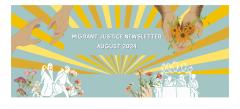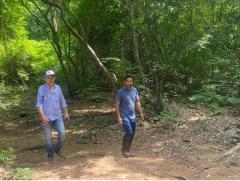El Salvador’s millennial president Nayib Bukele was handed an easy re-election victory in the Central American nation on February 4.
The incumbent president, who once called himself the “world’s coolest dictator,” won in a landslide, according to Bukele’s own announcement on X (formerly known as Twitter). The president tweeted that he had won with 85 percent of the vote. In the same post, Bukele announced that his political party, Nuevas Ideas, had won fifty-eight of the sixty congressional seats in Sunday’s election. This allows him to further pursue his war on gangs and concentrate his power.
The Supreme Electoral Tribunal announced the official results on February 9, five days after polls closed, handing the incumbent his victory. The delay in issuing the official results was in part due to delays and technical problems, casting doubts and concerns over the legitimacy of the results of the election.
On February 7, the electoral body began a ballot by ballot count of votes for the country’s congress.
“The president has ‘self-declared’ himself president,” Leonor Arteaga, the executive director of the Due Process of Law Foundation, based in Washington, D.C., tells The Progressive.
“The official count has not been completed by the Supreme Electoral Tribunal, and the results have not been officially given,” she says. “However, at this moment that does not seem to be relevant because the president himself is the one who gave the results.”
In spite of the delays in issuing the official results, United States Secretary of State Anthony Blinken and other governments in the region, including Guatemala’s Bernardo Arévalo, have already congratulated Bukele on his victory.
According to reports by wire services from El Salvador, many voters turned out to re-elect Bukele due to his alleged successes in combating gang violence, but human rights groups have condemned countless violations of human rights during Bukele’s crackdown on gangs.
Bukele will be sworn into his second term in July 2024. But in spite of Bukele’s landslide re-election, his candidacy represents a constitutional crisis: Re-election is illegal, according to El Salvador’s constitution and experts.
“We have a president who was elected [the first time] in accordance with the constitution, but who took advantage of his popularity to dismantle democratic institutions,” Héctor Lindo-Fuentes, an emeritus professor of History at Fordham University in New York and co-host of the podcast Centroamérica: el presente y sus pasados, tells The Progressive. “Now we are going to have an illegitimate president who, despite having received many votes, simply violated the constitution to be elected and who already enters with very weakened democratic institutions.”
Bukele’s first term was marked by increasing concerns over his authoritarian tendencies. Among these were deploying the military to intimidate the congress within months of assuming office, as well as stacking the supreme court with his allies, using a state of emergency to combat gangs, and militarizing the country.
His second term is poised to bring more concerns.
“The persecution against the press, civil society, and critics are likely to get worse,” Arteaga says. “In the lead-up to the election, Bukele and his vice president utilized their social media accounts to attack, and this is likely to get worse.”
“To these people who say democracy is being dismantled, my answer is yes—we are not dismantling it, we are eliminating it,”—Vice President Félix Ulloa
Rather than seeking to calm international concerns over the creeping authoritarianism and human rights violations in El Salvador, Bukele’s vice president, Félix Ulloa, seemed to double down on the attacks on democracy.
“To these people who say democracy is being dismantled, my answer is yes—we are not dismantling it, we are eliminating it, we are replacing it with something new,” Ulloa, who was re-elected on Sunday as Bukele’s vice president, told The New York Times ahead of the February 4 elections.
This statement has raised red flags for the international community.
“While people exercised their right to vote, we are troubled by the unconstitutional moves that strongly influenced the outcome of Sunday’s election and statements by the vice president about ‘eliminating’ and ‘replacing’ democracy,” U.S. Senators on the Foreign Relations Committee wrote in a statement on February 5. “While we acknowledge the government’s progress on combating the violent crime that has plagued El Salvador for too long, we remain concerned about weakened transparency and oversight mechanisms and the rapid undermining of the rule of law and human rights protections.”
But outside of the spectacle, there exists a hidden economic crisis in the Central American nation, which has launched nearly six in ten Salvadorans into poverty. According to El Faro, this is the result of rising prices, the loss of crops due to the effects of climate change, and the lack of support for small farmers.
“Bukele did not have any proposals other than the same [of fighting gang violence],” Arteaga says. “But increasingly the people will speak out about the economic crisis.”
She adds, “It is [Bukele’s] Achilles’ heel.”
Public opinion about democracy in El Salvador has long shown trends of degradation. Surveys done by the Central American University have found that many Salvadorans hold a low view of the democratic order, and, as the results of the 2024 elections suggest, there is support for a perceived “strong leader.”
There is also another factor involved in the support for Bukele, with many falling for the cultivated image of the young libertarian president.
“There is a cult of personality,” Arteaga says. “It doesn't matter how many of these journalistic reports that point out that there is corruption [come out]. There is an almost blind belief in Bukele and he has known how to capitalize on that enthusiasm that it generates.”
She adds: “It is dangerous for the region.”
Since taking office in 2019, Bukele has found support from the far right and libertarians in the United States. He has sat down with former Fox News host Tucker Carlson on multiple occasions, as well as Roger Stone, and in the lead-up to the presidential election he received support from Florida Republican Congressmember Matt Gaetz, who praised the proto-authoritarian leader for his questionable tactics on combating gang violence in El Salvador.
“What Bukele has in common with them is a complete disdain for democratic institutions, for the truth, the constant repetition of statements of affirmation that are useful to them regardless of whether it has anything to do with reality or not, and that political performance style of aggressiveness,” Lindo-Fuentes says. “It is a personalist agenda devoid of ideology that allows him to echo conspiracies that suit him. There is an ambition for power.”
Throughout his first term in office, Bukele openly embraced the far-right antisemitic conspiracies about George Soros in his attacks against the Salvadoran press, especially the independent publication El Faro.
Bukele has regularly invoked Soros in his attacks on the Salvadoran press and against international criticism.
Soros, a Hungarian billionaire and Holocaust survivor who has become a major voice championing transparency around the world, has also become an antisemitic dog whistle meant to suggest a conspiracy over his influence over media, according to groups like the Southern Poverty Law Center and Anti-Defamation League.
Bukele has regularly invoked Soros in his attacks on the Salvadoran press and against international criticism. He increased his critique of El Faro using the Soros dog whistle after El Faro published an investigation suggesting Bukele tried to utilize the Jalisco New Generation Cartel, commonly known as CJNG, to capture a gang leader who had fled the country.
But rather than being antisemitic in his own words, Bukele is likely just parroting other authoritarians in the region.
“It’s like a script,” Arteaga says. “I don't think it’s an antisemitic feeling. I think it’s more part of the phrases that presidents in the region use when they want to attack civil society and independent journalism.”


